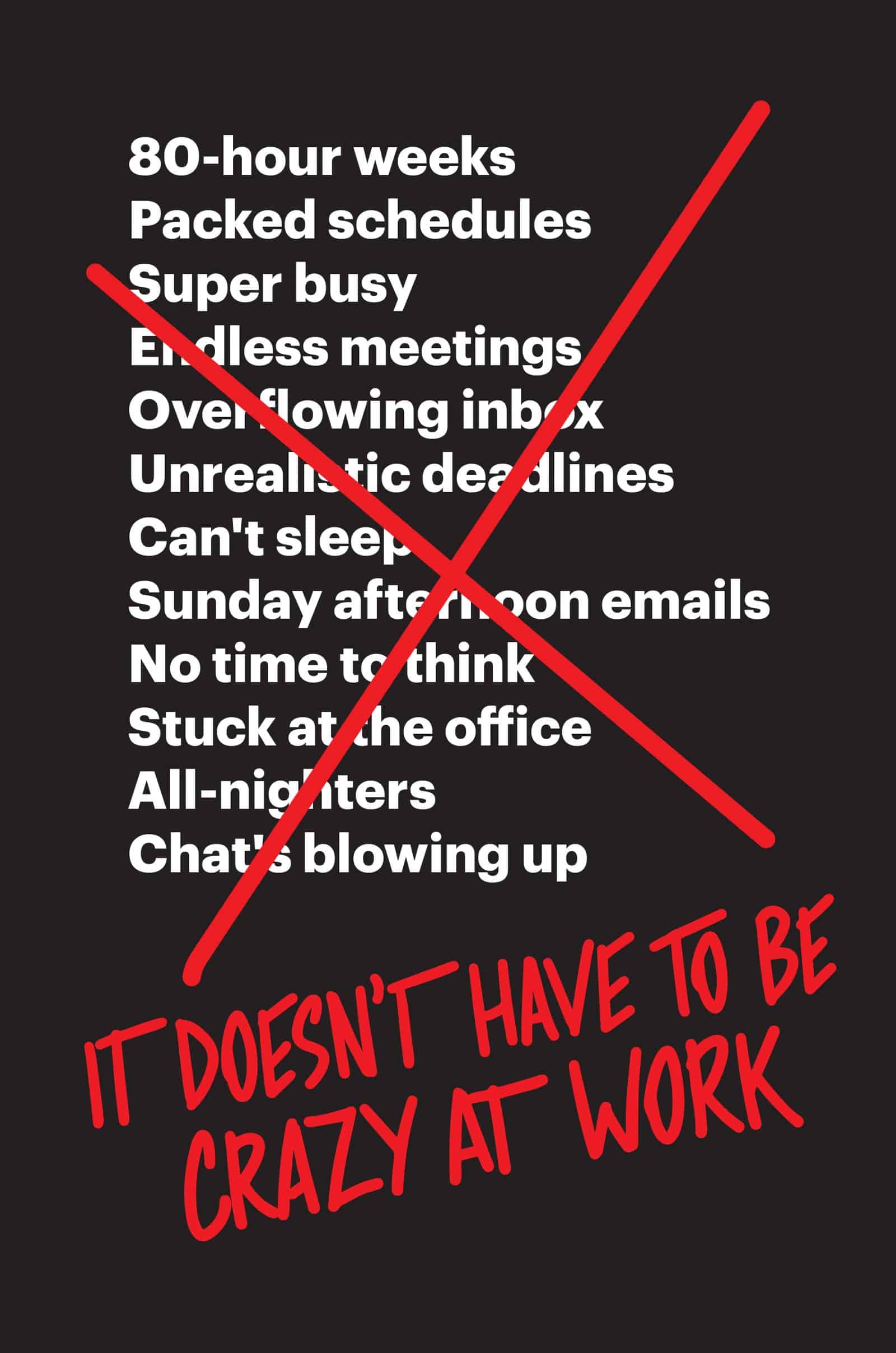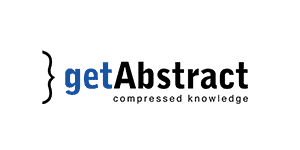It Doesn’t Have to Be Crazy at Work
Author:Jason Fried & David Heinemeier Hansson

👍GetAbstract Rating: 8/10

GetAbstract Summary Preview
Jason Fried and David Heinemeier Hansson offer a strategy for creating the ideal company culture –– what they call “the calm company.” Their approach for better productivity is not more hours but rather less waste and fewer things that induce distraction and persistent stress. “Calm” has been the cornerstone of their company’s culture since Basecamp began 20 years ago. It Doesn’t Have to Be Crazy at Work shows what they’ve done, and how any manager or executive can do it too.
From Crazy to Calm
Fried and Hansson argue that the amount of work to be done each day hasn’t really changed. What has almost disappeared is the uninterrupted, dedicated time to do that work. In its place are unproductive meetings, never-ending email conversations, and endless interruptions, either in-person or in constant Instant Messenger (IM) requests.
The authors have been practicing what they preach for the last two decades at their Silicon Valley based software company Basecamp. They advocate calm over crazy on one founding premise: “The answer isn’t more hours, it’s less bull@*it.”
One example is a company-wide aversion to those unproductive meetings. Instead, employees are asked to provide daily or weekly updates on their activities for others to read when they have the time available. Not only are the meeting hours reclaimed, but the time spent preparing for and documenting after those meetings is also saved. This time quickly adds-up to blocks of uninterrupted time for immersion into key projects.
Defend Your Time
By restricting the work week to 40 hours (32 in the summer), the authors remove the potential for flexible or extendable deadlines that inevitably allow 40 to become 60, 70, or even 80, with a few crisis-driven all-nighters thrown in for good measure.
They admit to not being perfect in their adherence to the eight-hour day, but the stronger cultural message is that what doesn’t get done by Friday at 5pm will still be there on Monday at 9am. Sticking to that philosophy prevents you from promising ridiculous turnaround times to land a competitive deal (and stressing your people out in the process).
The authors firmly believe that a well-rested team working in a low-stress environment will produce better-quality work than a frazzled team killing themselves to meet an artificial deadline, only to go back and fix mistakes for a very unhappy client later.
This commitment to calm over crazy has also transformed the overall strategic direction of Basecamp. Rather than reminiscing over the “good old days” when they only had a few products (before the traditional pursuit of growth at any cost), the authors made the highly radical decision to cut back on their product line and simplify at the peak of their growth cycle. After all, “cutting back when times are great is the luxury of a calm, profitable, and independent company.”
About The Author & Review
About The Author:
Basecamp co-founders Jason Fried, the CEO, and David Heinemeier Hansson, the CTO, co-authored the New York Times bestsellers ReWork and Remote: Office Not Required
Review:
To be a star performer in the modern business world, you have to be a warrior. Sixty-hour weeks are for part-timers, and don’t even think about leaving your desk for lunch. If you’re not taking work home, sacrificing sleep, and feeling permanently stressed, you’re just not trying hard enough.
In their follow-up to the modern business classic Rework, Jason Fried and David Heinemeier Hansson’s new book, It Doesn’t Have to Be Crazy at Work, argues that this is all madness: “Sustained exhaustion is not a badge of honor, it’s a mark of stupidity.”
The evolution of this crazy world of Type A workaholics was remarkably easy. A mass pursuit of growth at any cost leads to unrealistic expectations that only produce stress, exhaustion and, ultimately, poor decision-making.
The authors point out the nonsensical pursuit of trademarks, patents, policies and procedures in the name of protecting intellectual property, while completely ignoring the organization’s most valuable asset: their employee’s time and attention. The math is simple: an unproductive hour-long meeting for eight people isn’t a waste of one hour, it’s a waste of eight hours – and that doesn’t include the additional time that has to be spent to make-up the lost productivity of those eight hours.
Notification: As an Associate or Affiliate of Amazon.com, GetAbstract and/or Soundview Summary, we earn a commission from qualifying purchases.

